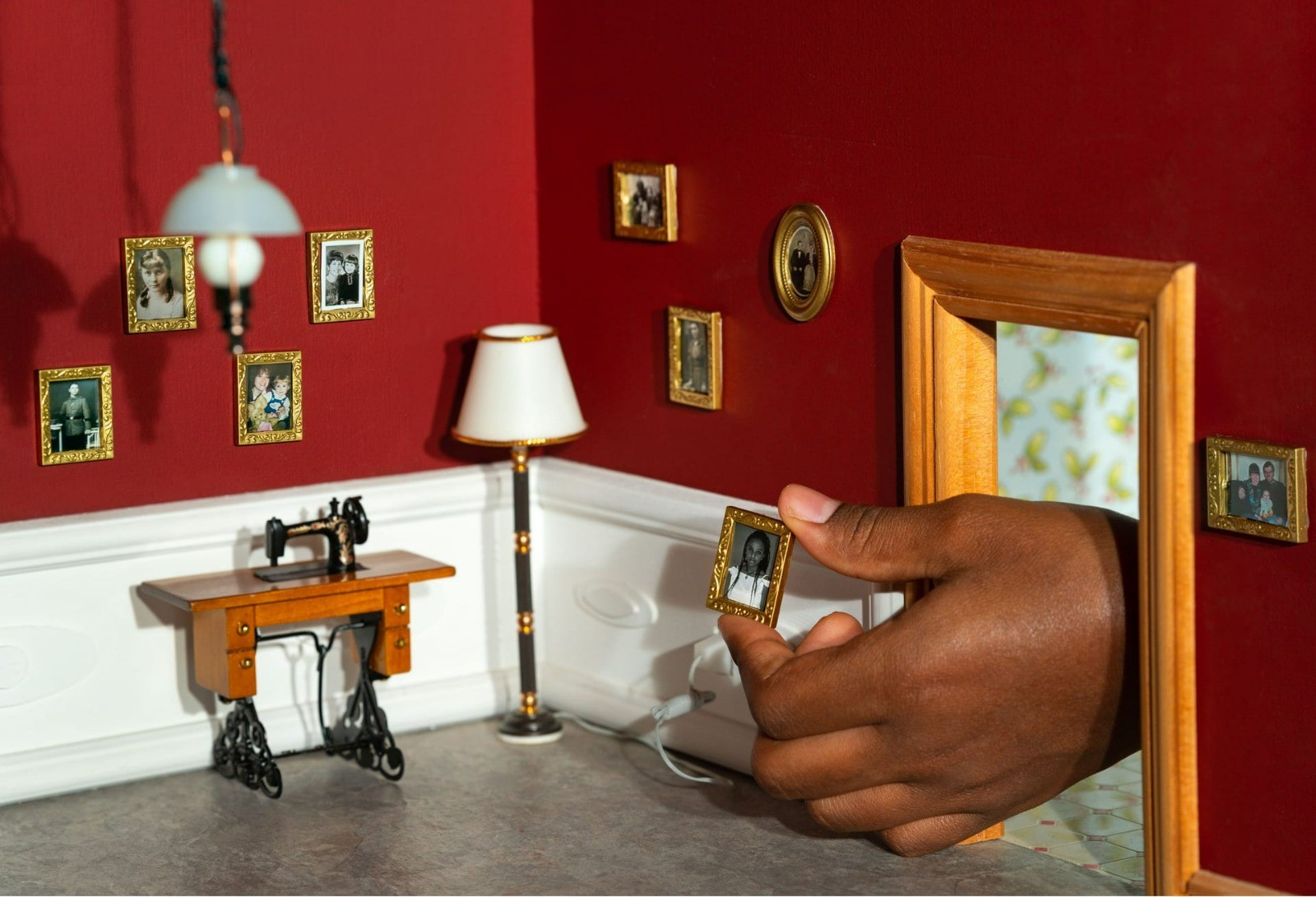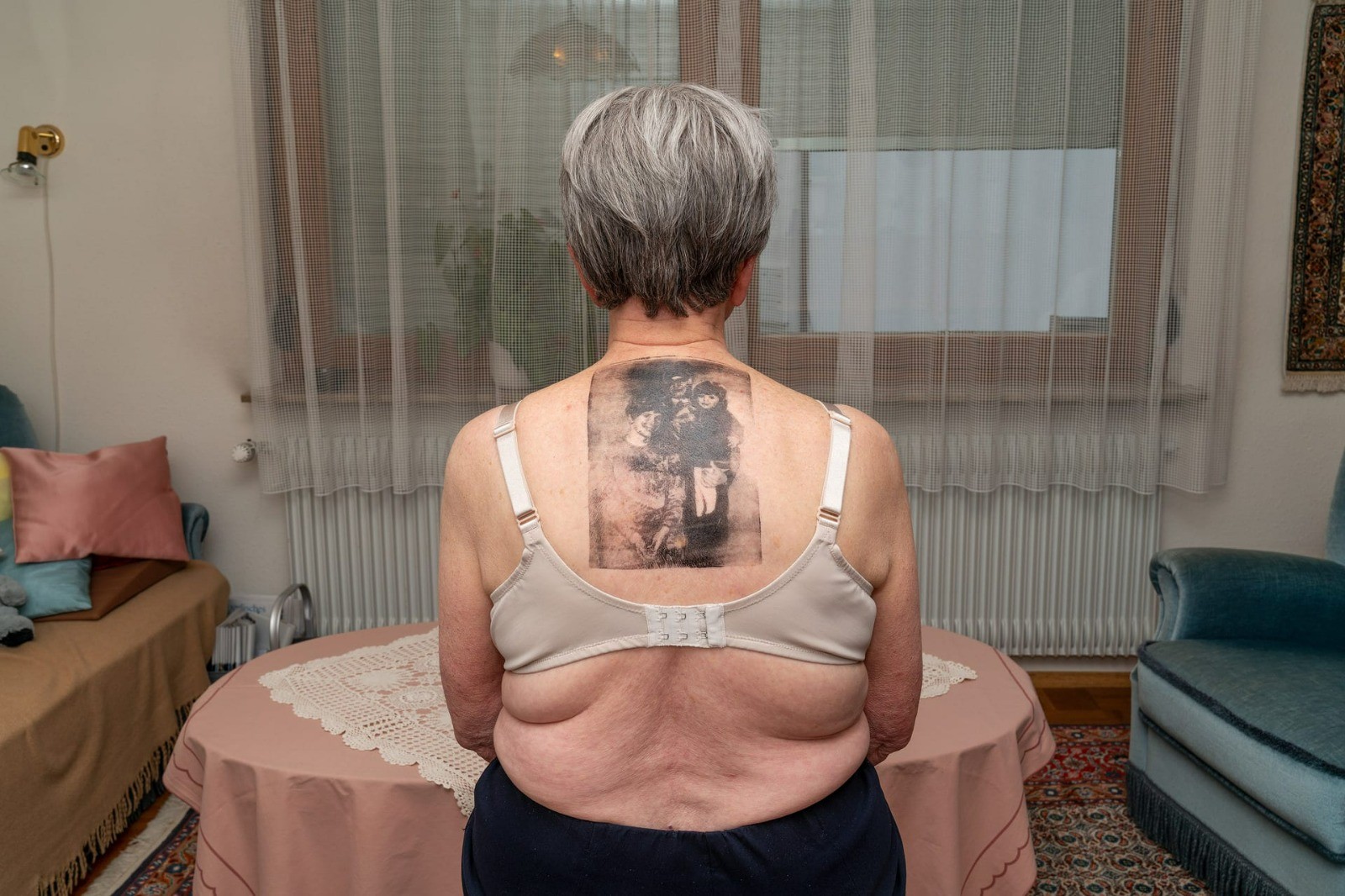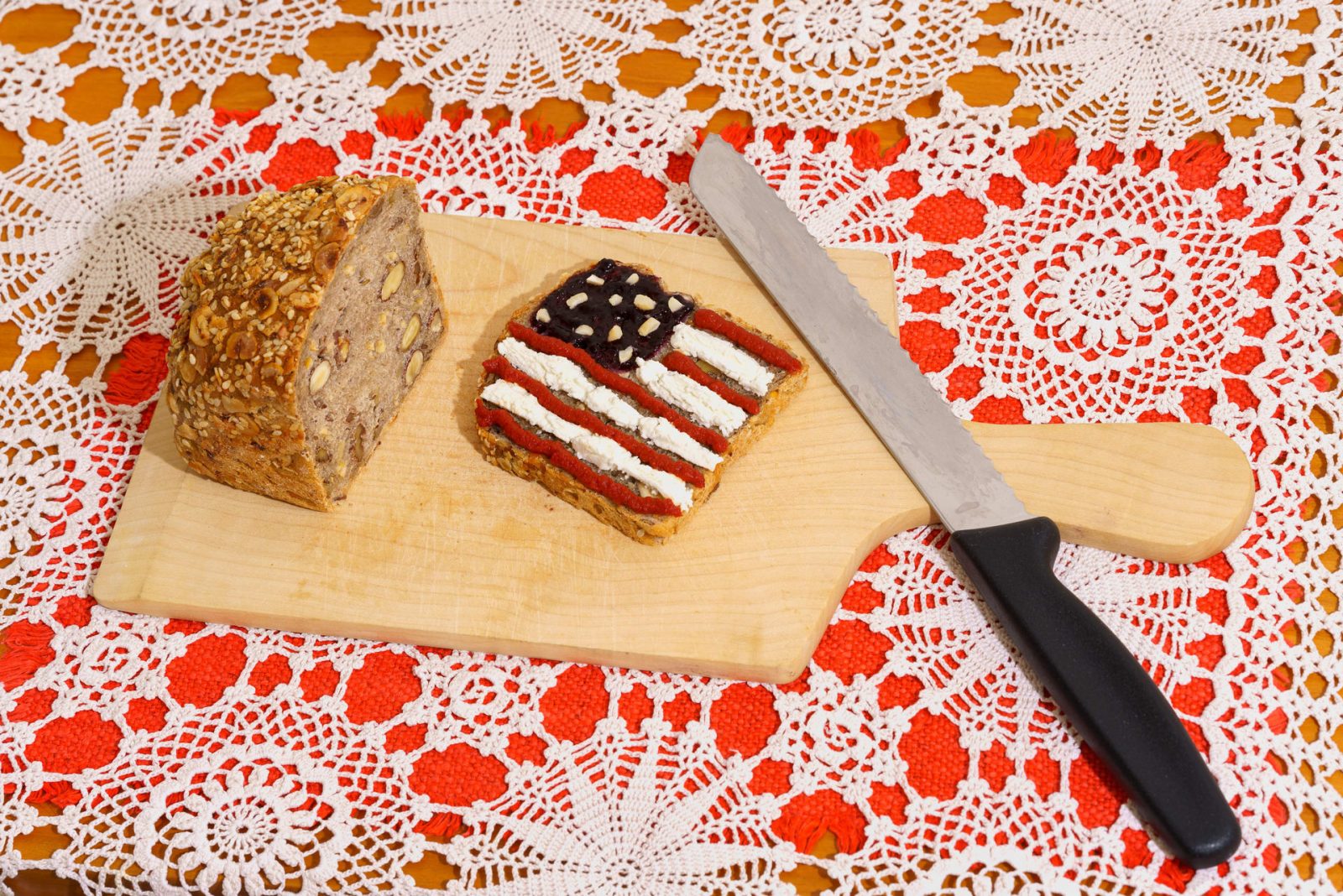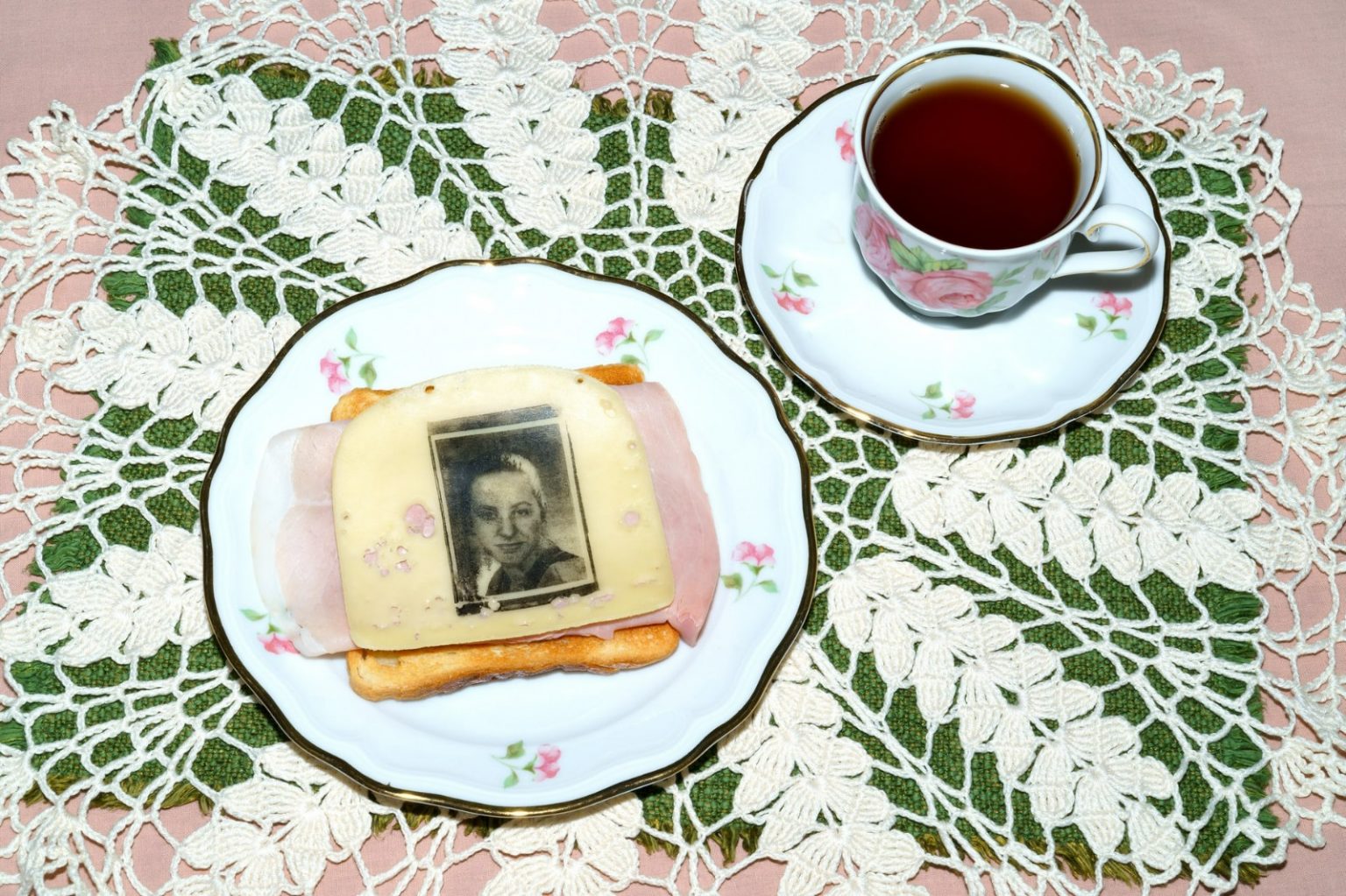Lauren speaks to Francesca Hummler about her photography, dealing with family trauma and their story of migration and identity.
Francesca Hummler is a photographic artist working with photo-therapy and self-portraiture. She draws from her experience as the daughter of German immigrants in the US to explore intimacy and generational trauma.
culturala / Lauren Wells
Hey Francesca! How have you been? I haven’t seen you since your RCA degree show back in June, what have you been up to since? I hear you’re continuing your photo therapy project…?
Francesca
I’ve been busy checking beaches off my bucket list. Some of the best were in Provence while on a residency with Antoine d’Agata in Arles last month. The project I worked on at the residency dealt with my relationship to Christianity, specifically engaging the rituals of the Catholic Church through self-portraits.

culturala
A lot of your works deal with generational trauma and form, in many ways, a therapy project. How did you first decide to start working with this theme in mind?
Francesca
I had been using photography as a mode for self-therapy for a couple of years through self-portraiture and separately documenting my family members’ life events. When I took my sister’s portrait with our family’s dollhouse I realised its potential for addressing unspoken traumas within the family. My photographic practice quickly became a combination of family portraits with staged therapeutic techniques.
culturala
You grew up in California in a German immigrant family, with your distant family in Germany being quite religious and conservative. It’s interesting how these two diverse influences impacted your work, your personality and how you navigate yourself in the world. Do you feel that you want to show this sense of isolation in your work or is it more of an exploration of your heritage?
Francesca
I think that exploring my heritage is a by-product of the need to express how isolating being German-American is for me. I moved around a lot as a kid and have no real hometown in the US. I was rarely connected with anyone whose parents had also emigrated from Germany. However, missing a sense of home isn’t unique to my experience and is something I have seen many people in the US with a white suburban middle-class background experience. There is a certain type of loneliness that Americans struggle with, perhaps due to a combination of the segregated cultural/natural landscape and our hyper-capitalistic individualist values. The easiest way for me to deal with this isolation was to turn my camera towards it and show the sides of my personality which have been shaped by how difficult it is to connect with other Americans. Of course, I also recognise how privileged my family’s experience has been. Coming from Germany allowed my parents a smooth legal and cultural assimilation process which systematic racism in the US does not afford all immigrants equally. This privilege complicatedly ties into my sister’s adoption from Ethiopia, a topic that could be a separate interview entirely.

culturala
What does identity mean to you?
Francesca
Identity is how I think about myself. We often conflate identity with the various societal categories laid out for us when it’s very difficult to describe an individual in those terms. My identity is increasingly about the relationship I have with myself and less about how others would define me. While identity politics can positively connect people as part of a community it still centres on exclusionary principles. People argue with me about if I’m German or if I’m American. I once had a dinner guest of my flatmates yell at me in German saying that since I’ve never officially lived in Germany, I’m not German. Interestingly, only one of her parents’ is German. I hate gatekeeping and how annoyed people are with my confidence in who I am. Oh, and mentioning that I have both passports makes me uncomfortable, like it’s something to prove. For me, this is less angering and more amusing. What’s angering is imagining how these sorts of people react to people who don’t identify as “white-on-white” like me.
culturala
Having grown up in the US, what influence do you think this culture made on you vs your parents? Especially as the US really is a country of immigration?
Francesca
I was watching the film Belfast when it dawned on me that my parents grew up in small German villages, much smaller than the Irish community shown in the film. Everyone looked, sounded, and lived incredibly similarly, with the biggest difference being the brand of Christianity they were brought up with. If this small difference can lead to civil war then the tensions and differences that exist in the US make me incredibly nervous. That being said, I think it’ is noteworthy that my Catholic father and Protestant mother from German villages moved halfway across the world to raise a multi-racial family. That sort of thing didn’t used to happen. The last state to repeal laws against interracial marriage was Alabama in 2000, that’s three years after I was born.
The lack of the cultural “melting pot” that was advertised to me in school, and admittingly a need to feel special, led me to decide I would only be proud to be German when I was younger. After moving to England I am, sort of regrettably, more proud to be American, as I’m realizing that so many of the Americans I treasure don’t fit the stereotypes people hold about them outside the US. My parents think people my age are “overly sensitive” when in reality a lot of people are carrying the trauma of their immigrant parents around with them and deciding it’s a burden we can collectively work through. At least we are fighting, which means we haven’t accepted the way things are just yet. A lot of truly horrible things are happening in the US, especially to women, but I can’t give up, and that “there’s no quitting” attitude is truly American.

culturala
Which of your pieces stands out most as showing this community lines crossing or this “patchwork quilt” as you say of identities?
Francesca
My piece “American Spread on German Bread”, which shows a piece of German nut bread covered in jam, cheese, tomato paste, and cashews to form an American flag, speaks most directly about American immigrant identity. It’s a constant balancing act of remembering the culture you come from and embracing the things that are meant to connect the patches in our quilt. My father is forgetting German words, while my younger sister is actively trying to teach herself how to speak Amharic again from YouTube videos. Even my use of food items in this photograph is very literal, as the food in every American immigrant household is so different from what is seen as the typical American diet. Connecting different cultural communities is unique in America because the immigration is different Europe or the UK, where lots of people come from former colonies that already connect with the culture on some level. Bringing the corners of the earth together in one country is a lot like trying to sew a quilt without a thread.
culturala
I really love that photograph! It was the one that stood out to me most at your degree show. There’s another one I really liked, the one of a ham and cheese sandwich. How did you go about creating the new photo printing method you used there?
Francesca
I took a plate etching workshop at the RCA and started asking the technician about using the UV polymer plate process to print photographs on surfaces other than paper. At first, we didn’t think it would be possible because normally the printing press is used to drive the paper into the grooves of the plate with tons of pressure. It took a lot of experimentation with different inks, including one which was toxic and would make me feel nauseous for days after printing on my skin. Eventually, I found the right balance of materials for the process and was able to print my grandmother’s portrait on the cheese as seen in the image.

culturala
In this piece and in your work overall, you really play with visual metaphors, what do you think is the impression you want to create from the observer?
Francesca
I want people to be drawn in by the humour and irony in my work so that I can address darker themes. People always comment on the bright colours in my work and that, along with the symbolism, have become the markers of my style. I heard somewhere recently that a photograph can only show you something, not explain anything. I disagree with this statement. My photographs are very explanatory, in their production and their final state.
culturala
You mentioned before about the residency you went to this summer, are you going to continue exploring the effect of generational trauma/self identity?
Francesca
I think my work is getting bolder and I aim to no longer shy away from harder themes like abuse and gender dynamics in the future. While reflecting inwards will always be at the core of my practice, I also envision myself involving other people’s stories through photo-therapy. I specifically want to spend more time in the United States and Germany exploring history through my images. I would love to travel to Germany to make a series about my great-grandmother, who people say I take after. She had to flee to the Alps during the Second World War and there are some mysterious stories about her encounters with French troops during the end of the war that I would like to re-enact as self-portraits.
culturala
Thanks so much for letting us get a glimpse into your work! Final question… What are you reading at the moment?
Francesca
I just started After Sappho by Selby Wynn Schwartz!
You can find Francesca’s work on her website, francescahummler.com, and on her Instagram @fransangle – or keep up-to-date with her latest news via her profile on our network page.
You can also read the newsletter version of this piece here.
We use cookies to make sure you get the best out of our presence, and by using our website, you agree to our use of cookies. For more information, read our Policies or reach out to us by email.